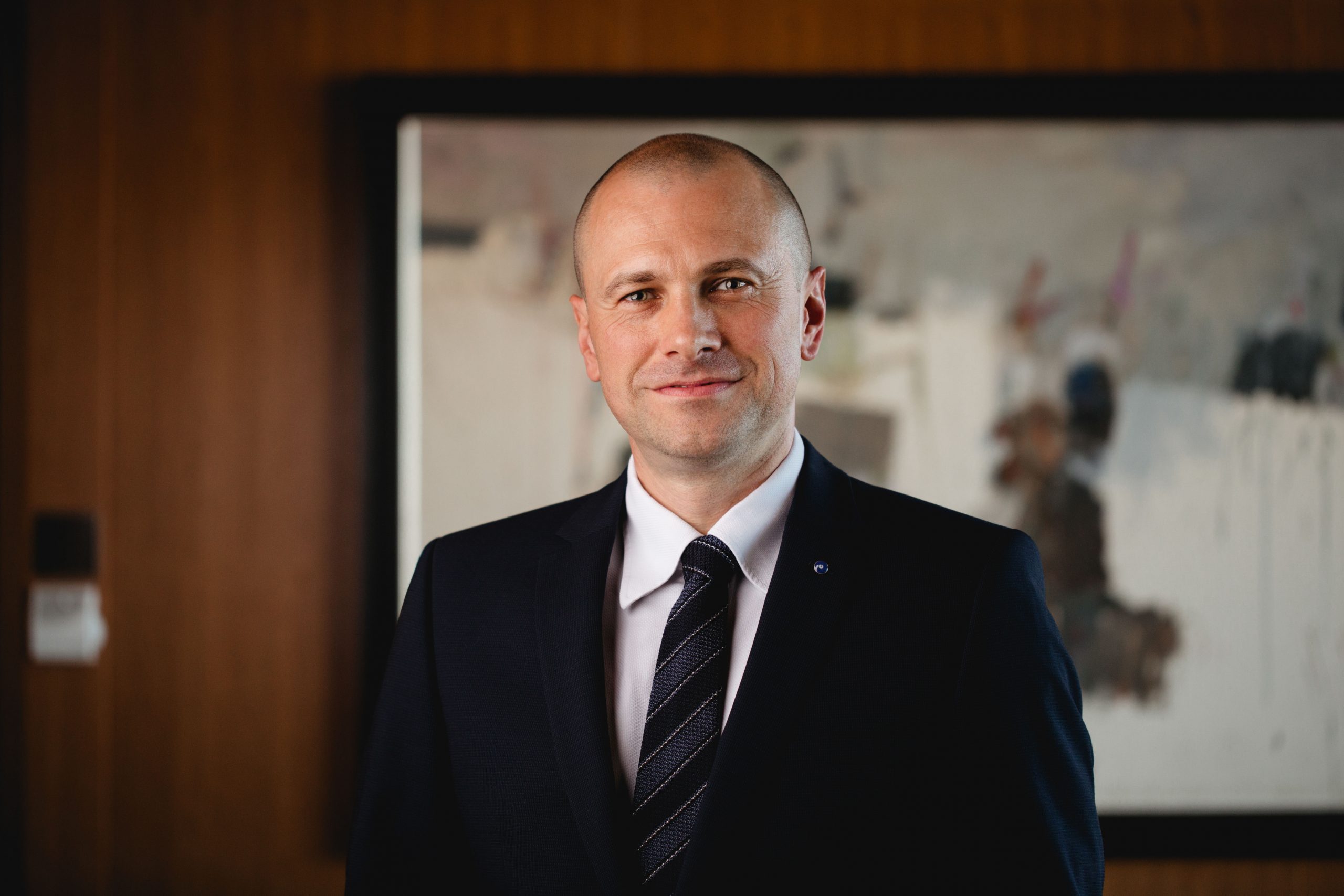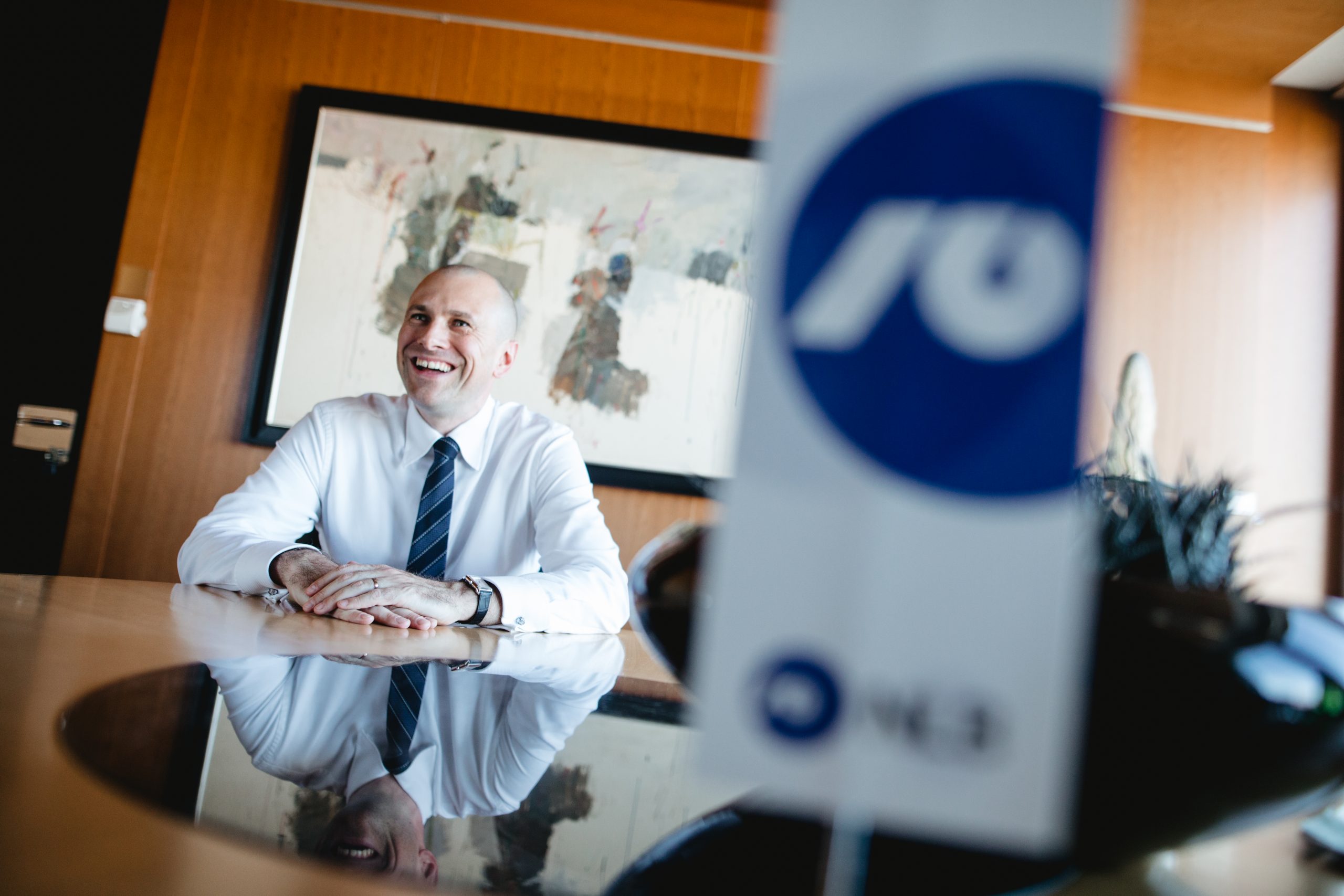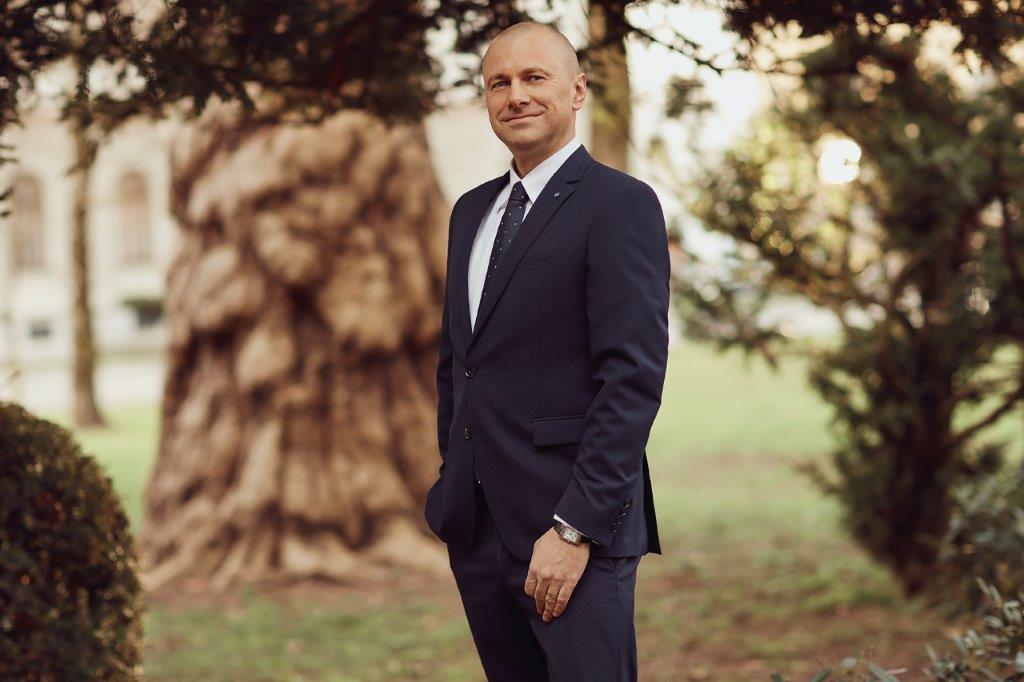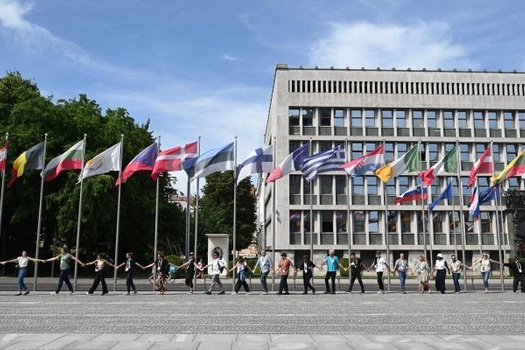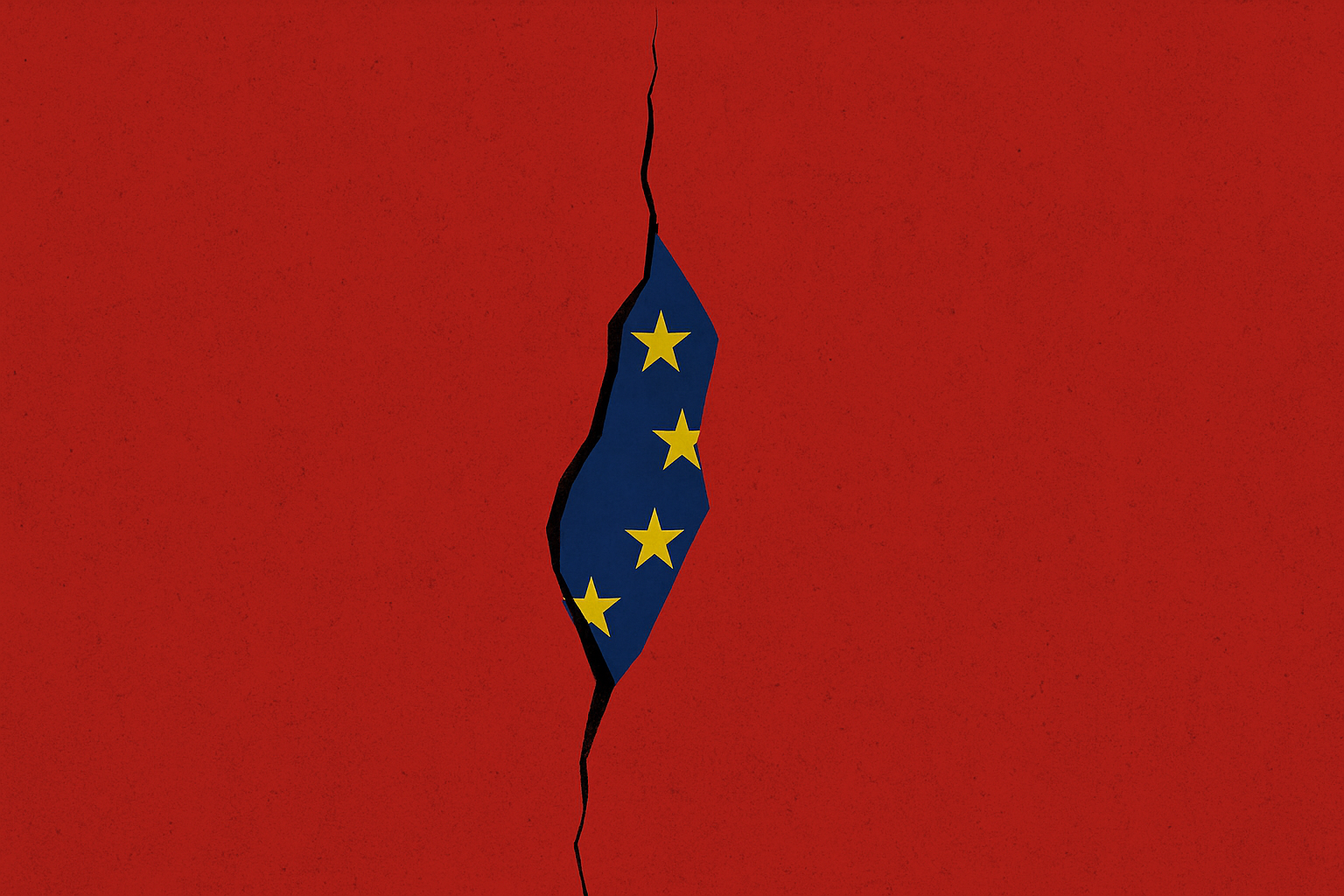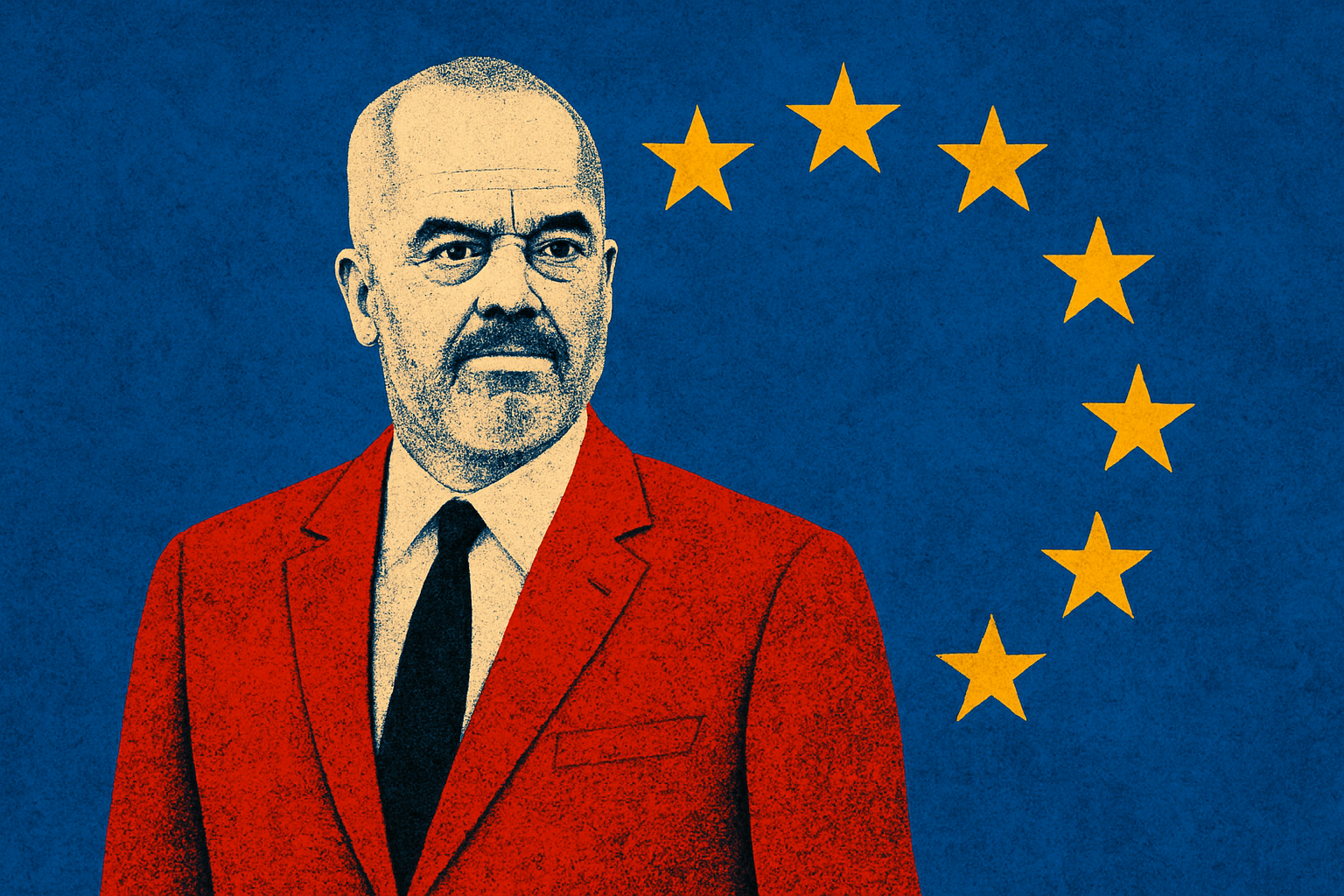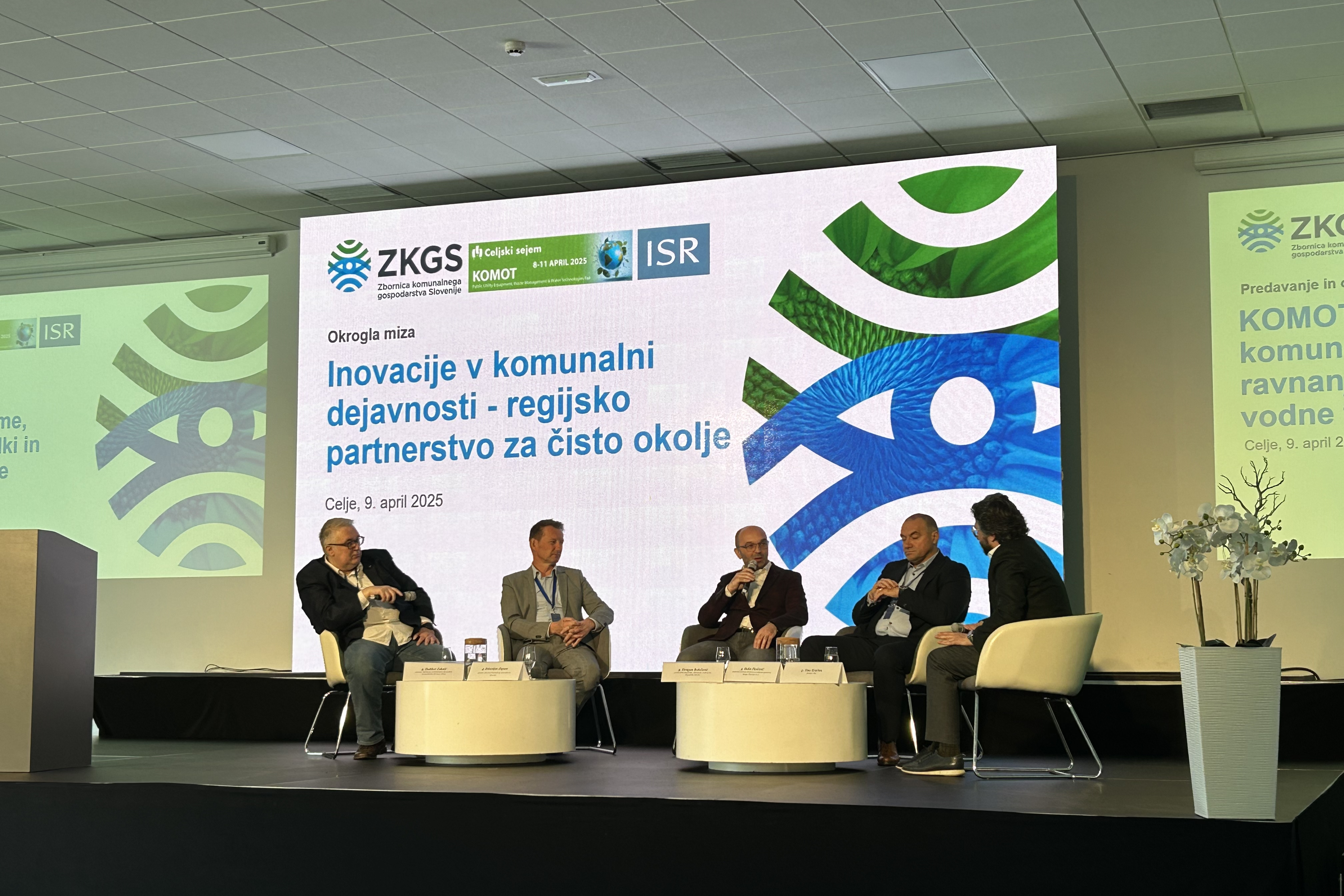Interview with Blaž Brodnjak, CEO of NLB Group
Beyond Borders
Maja Dragović
JOURNALIST AT THE ADRIATIC
Iztok Lazar
PHOTOGRAPHER
“We need to accelerate the process of eliminating political borders and start building bridges,” says Blaž Brodnjak, NLB’s CEO, talking about the Balkan region that is still trying to leave the quarrels of the past behind. The finance veteran, who’s been at the helm of the regional banking giant NLB Group since 2016, believes the COVID-19 pandemic has created a once in a lifetime opportunity for the Balkan countries to put aside their differences and unite to work for the common good.
“We need to accelerate the process of eliminating political borders and start building bridges,” says Blaž Brodnjak, NLB’s CEO, talking about the Balkan region that is still trying to leave the quarrels of the past behind. The finance veteran, who’s been at the helm of the regional banking giant NLB Group since 2016, believes the COVID-19 pandemic has created a once in a lifetime opportunity for the Balkan countries to put aside their differences and unite to work for the common good.
“Geo-politically, geo-strategically, the cards have been reshuffled” notes Brodnjak. “Those who do not understand the challenge and exploit this opportunity, will simply be left behind. This is also true for our region. Global supply chains have been repositioning – a significant part of whatever has been produced in the Pacific-Atlantic basin has been moving back to Europe.”
Cost predictability and timely delivery are the main reasons behind the supply chain shift, and the countries in the region are extremely well-positioned to take advantage of this new paradigm, says Brodnjak.
“We are at the nexus of central Europe with the ports of Koper, of Rijeka, and so on,” he explains. “The entire region should build three vertical highway and railway connections to become a vital part of the new development axis of Europe. The Three Seas initiative is nothing else but connecting Adriatic and Black Sea ports with the North Sea, i.e. connecting the port of Gdansk with the ports of Koper, Rijeka, Split, Bar, Durrës, and others on the Adriatic coast and Greek and Black Sea ports to the Southeast. If approached consistently and decisively enough, this will connect Central Eastern Europe and Southeast European countries into one market and thus become the second vertical development axis of Europe with a population of more than a 100 million people.”
First and foremost, the NLB chief adds, “the governments need to understand this opportunity and work towards accelerating the construction of the productive infrastructure – roads, railways, energy efficiency projects, renewable energy production, and communication lines.” The business will then follow, he concludes.
Serbia, he notes, has recognised the challenge and the opportunity presented by the current developments and has shown enormous economic pragmatism, adding that the FDI influx in the country is really impressive and growing steadily.
“If you look at the foreign direct investment coming into Serbia in the past years, it’s really astonishing. Serbia has been the world champion in FDI per capita in 2018. And then in 2019, more has come in, and in 2021 even more than in 2019 – despite COVID-19.”
Driving south of Niš to North Macedonia, he says, new factories are being built at an incredibly fast pace. “This means there is a direct influx of capital which means exactly what I’m saying: the insourcing of supply chains back to Europe, while utilising the still a bit lower cost of talents in the Southeast Europe. If they deliver quality, they will also be able to significantly grow the export of production and services’ solutions, since there has been an obvious lack of talent in Central and Western Europe.” And in this respect, Brodnjak concludes, countries in the region offer a driving distance delivery that is pretty predictable in terms of “just in time” supplies.
DRIVING DISTANCE TOURISM
DRIVING DISTANCE TOURISM
When it comes to distance, the pandemic has also provided a new opportunity for destinations that are within the tourists’ driving proximity. There have been fewer flights in the last couple of years and Brodnjak doesn’t expect air travel to pick up dramatically even after the pandemic ends. “Flying will very likely not be so convenient, nor so cheap.”
He believes that in the future people will remain cautious and will seek destinations that are closer to home. This, in turn, he adds, represents a huge opportunity for the region that is already popular with tourists within a 1,000 km driving range. This year, for example, Croatia saw a significant increase of Polish tourists on its coast, recording over 1 m arrivals and over 6.6 m overnight stays from the Polish market. If this has happened in Poland, there are tangible opportunities to also attract more tourists from Germany, France, and the entire Eastern Europe, notes Brodnjak.
“This is now a high opportunity for us to be much more recognised as a target destination.”
But others are not sleeping on their laurels, so the region needs to act fast, warns the NLB boss. The time is ripe to invest in high quality services in remote places to meet the expectations of tourists in the future, he adds.
“Slovenian type of tourism is exactly shaped for something like that,” he says. “Let’s forget the massive coastal hotel resorts, and so on. If you look at the family businesses, farm estates, that’s exactly the gist of the future of tourism: sustainability. And if any country in the world is well-placed for it, it’s Slovenia. Moreover, if you look at the other countries in the region, it’s the same. Just look at the breathtaking beauties of Plitvice (in Croatia), or other national parks in Serbia, Bosnia and Herzegovina,North Macedonia, Montenegro, Kosovo, and Albania. Simply fantastic places. If proper investment is coming in to actually secure a sufficient level of quality of services and accommodations, we can become the new elite destination of the world.”
KEEPING PEOPLE AT HOME
KEEPING PEOPLE AT HOME
Working as one region and strengthening the economic ties in tourism, industry, or services will have a direct impact on people, improving their quality of life and, with that, says Brodnjak, address the issue that’s been plaguing the region since the break-up of Yugoslavia – the exodus of young and talented. “In 2018, a staggering number of people left the Slavonija region in Croatia,” Brodnjak points out. In Serbia, each year 51,000 people, most of them young, leave the country. In Bosnia and Herzegovina, the numbers are similar.
The pandemic has offered an opportunity to partially address this issue in the way of online working, observes Brodnjak. The possibility to work remotely, especially for scarce IT talents, has given the Balkan people the opportunity to work for any company anywhere in the world.
“This is good, since they earn decent salaries and spend or invest this money at home. In turn, this is developing local societies, and is not actually making these people leave their countries.”
“If we want to do business in this region, us as the businesses, we need to retain the people to whom we will be selling our services. We want and need a vital part of the population in these countries to feel well and stay with us.”
SECURITY FIRST
SECURITY FIRST
Ensuring economic success for all with a common agenda will also give a boost to overcoming political differences between the countries and help stabilise the region, Brodnjak continues.
“Why should we not build the bridge of business and talent opportunities with the free movement of talent, goods, and capital? That’s the spirit of the European Union and that’s the mechanism that secures and ensures peace in Europe. And the same can only be true for our region.”
Slovenia especially should not underestimate the importance of security in the southeast Europe. “Slovenes should not be thinking only of Western Europe, because if there are any security threats, they are coming from the South East, not from the West. In this respect, we need to stabilize this region. And, also from a purely Slovenian interest point of view, it is crucial that these countries are developing continuously and predictably, and there are no hostilities that result in overwhelming migration waves.”
Brodnjak also notes that Slovenia has overlooked the region for too long and should do much more to make the most of its opportunities there. But this should start at home:
“Slovenians have heavily neglected the region so far, the sheer fact that our children have not been learning Slavic languages of the region in schools is to me an unbelievable tragedy. This is our neighbouring region, where we Slovenians have traditionally had significant connections personally and in business terms.
There is enormous value in broader regional cooperation, from stability, security, but above all business and demographic stability point of view. It is clearly much easier and more effective to build relationships if one can interact meaningfully in the local languages rather than having to communicate in English or German.
We sing the same songs, many of us still cheer for the same teams. There is so much more connecting than dividing us, so let’s embrace the attitude of glass is half full and not half empty.”
POLITICAL LEADERSHIP
POLITICAL LEADERSHIP
For broader cooperation to take place, opening the borders among the SEE countries is a must, says Brodnjak, a veteran of the financial sector in the region, who has held managerial or supervisory roles in 17 banks in eight countries (among them all ex-Yugoslav ones).
But it will require consistent and decisive political leadership, he adds.
“This is all leaders of the region going together to Brussels, requiring a free economic zone. Only a bit more than 20 million (people) is barely enough as a critical mass to succeed locally, and then be able to have the critical mass to expand internationally.” What is more, he adds, “our traditional brands are still well recognised throughout the regional countries.”
Brodnjak believes that coming to an agreement on the open borders internally, within the region, will show the EU that SEE countries are able to come together on meaningful things. “And if they agree on that, then the political borders among the countries become irrelevant. This is why I have been stating the Open Balkan initiative is one of the most important initiatives in decades, firstly for the stabilization and prosperity of the region, and secondly as a message to Europe, “look guys we were able to agree on critical matters.”
SETTING AN EXAMPLE
SETTING AN EXAMPLE
He points to the ongoing disputes between Slovenia and Croatia – border, nuclear power plant, and foreign currency savings of Croatian depositors – as an opportunity to set the example for the rest of the countries in the region on settling differences.
“There is a task for the Slovenian and Croatian politicians to show the rest of the region that disputes can be resolved and differences can be overcome when working towards the common good. Let’s label (the border dispute) a bilateral agreement based on the arbitrage process. And let’s have it done.”
The two countries are also partners in the only nuclear power plant in the region and are working to settle disputes over the nuclear waste storage.
“We all know that without the second block of nuclear power plant, there is no sustainable energy production in Slovenia,” says NLB’s boss. “The same is true for Croatia, we both need the nuclear power plant in Krško, there is no debate. Slovenia is a heavily industrialised country, we need predictable supply of energy. There is no alternative to it, whoever speaks differently is just deceiving.”
Brodnjak also brings up the pressing issue of the foreign currency savings’ deposits of Croatian citizens in the former Ljubljanska banka that directly impacts the NLB Group.
“This is especially important for NLB, since without resolving this issue, we cannot enter the Croatian market,” he explains. “And if we entered it, we would become the regional platform. We would be the only financial institution covering all of the markets from ex-Yugoslavia, with a meaningful top-three position in six of them. Once we add Croatia, we will actually be supporting the businesses throughout the entire region as trade finance provider, as a payment and a support hub.”
The importance of resolving all of the current issues cannot be underestimated, remarks Brodnjak, as Croatia is Slovenia’s third most important trading partner.
“We cannot have these 30-year old disputes open any longer. We have to close them and move on, together. Together in Brussels, together in Moscow, together in New York, in London, everywhere.”
“We need to defend the interests of the region together because we are so interconnected. Almost half of Slovenians are vacationing in Croatia, Croatians are building businesses in Slovenia. They own trade, we own finance. There is so much value in this cooperation.”
The two countries together, he points out, is a combined market of 6.5 million, not a fragmented market of 2 million Slovenes and 4.5 million Croats.
“Adding the others through the Open Balkan initiative, we (can) create real value. Slovenia and Croatia need to show the path because we are the European Union members, so we need to be the guiding post.”
Slovenia ended its presidency of the European Council on 31 December and, for Brodnjak, it will be viewed as successful only if the country manages to come to an agreement with Croatia on the three open matters.
“This will be a message to everyone else: it is possible to resolve very hard issues among ourselves,” he contends.
For 2022, Brodnjak’s wish list is very clear: “I expect that the Open Balkan initiative is joined by the missing three – Montenegro, Kosovo, and Bosnia Herzegovina. And I expect Slovenia and Croatia to finally agree on legacy issues.”
THE ADRIATIC
This article was originally published in The Adriatic: Strategic Foresight 2022
If you want a copy, please contact us at info@adriaticjournal.com.

